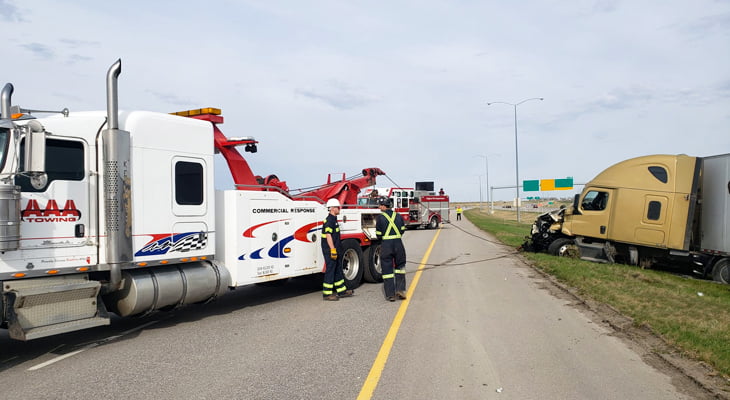
In our modern, fast-paced world, where time is of the essence, the ability to respond efficiently to roadway emergencies is of utmost importance. Whether it’s a minor accident or a major collision, the swift and effective management of incidents can significantly impact the safety of those involved and the smooth traffic flow.
In this blog post, we’ll delve into the essential elements of efficient response to roadway emergencies, exploring best practices and strategies to handle such situations with precision and professionalism with the help of expert towing companies.
Understanding Incident Management
At the heart of the efficient response to roadway emergencies lies the concept of incident management. This involves a coordinated approach to identifying, responding to, and resolving incidents on the road promptly and safely. Incident management covers a wide spectrum of scenarios, including accidents, breakdowns, hazardous material spills, and natural disasters.
The primary objective is to restore normal traffic operations as swiftly as possible while prioritizing the safety of responders and the public. Incident management entails a coordinated approach to swiftly identify, respond to, and resolve emergencies on the road.
It covers various scenarios like accidents, breakdowns, spills, and natural disasters, with the primary goal of restoring normal traffic operations while prioritizing safety. Organizations also focus on preventing future incidents through risk assessments and safety protocols, alongside ongoing evaluation to ensure response effectiveness and adaptability.
Key Components Of Efficient Response
- Preparedness: Preparation is fundamental to effective incident management. This includes having well-defined protocols, trained personnel, and appropriate equipment in place to respond promptly to emergencies. Regular training and drills ensure that responders are equipped to handle various scenarios competently. Preparedness is not just about having protocols and equipment but also about fostering a culture of readiness among personnel, instilling confidence and competence in their ability to respond effectively to any situation.
- Prompt Notification: Timely notification of roadway emergencies is crucial for initiating a rapid response. This may involve motorists contacting emergency services directly or the deployment of automated systems such as traffic cameras and sensors to detect incidents and alert authorities promptly.
- Assessment And Coordination: Upon receiving notification of an incident, responders must swiftly assess the situation to determine the appropriate course of action. This may involve dispatching emergency personnel, securing the scene, and coordinating resources to address any hazards or obstacles to traffic flow. Collaboration with local law enforcement and emergency services is essential for seamless and efficient operations.
- Traffic Management: Effective traffic management is vital for minimizing congestion and ensuring the safety of responders and motorists. This may entail implementing temporary traffic control measures, such as lane closures, detours, or adjustments to traffic signals, to divert traffic away from the incident scene and facilitate the movement of emergency vehicles.
- Clear Communication: Communication plays a pivotal role in successful incident management. Clear and concise communication between responders, dispatchers, and other stakeholders ensures that everyone is informed and coordinated throughout the response process. Utilizing modern communication technologies helps maintain constant contact and ensures effective coordination and collaboration.
- Collaborative Approach: Efficient response to roadway emergencies necessitates collaboration among various stakeholders, including emergency services, transportation agencies, towing companies, and local authorities. By working together seamlessly, these entities can pool their resources and expertise to address incidents swiftly and effectively.
Also Read: Incident Management For Off-Road Vehicle Recovery
Final Words
Efficient response to roadway emergencies requires meticulous planning, coordination, and execution. By prioritizing preparedness, prompt notification, assessment, and coordination, as well as effective traffic management and clear communication, responders can mitigate the impact of incidents and ensure the safety and well-being of everyone on the road. The commitment to upholding the highest standards of professionalism and service excellence remains paramount in assisting motorists during their time of need.
In addition, continuous training and evaluation help responders stay updated with the latest techniques and technologies, further enhancing their ability to effectively handle roadway emergencies and provide top-notch assistance to those in need.
About AAA Towing
AAA Towing is a leading provider of towing and roadside assistance services, dedicated to helping motorists in their time of need. With a team of highly trained professionals and a fleet of state-of-the-art vehicles, we are committed to delivering fast, reliable, and courteous service to our customers across the region. From minor breakdowns to major accidents, you can count on AAA Towing to be there when you need us most. Contact us today for more information.
Fast & Reliable Towing
We make sure each customer is completely satisfied before we leave the job.